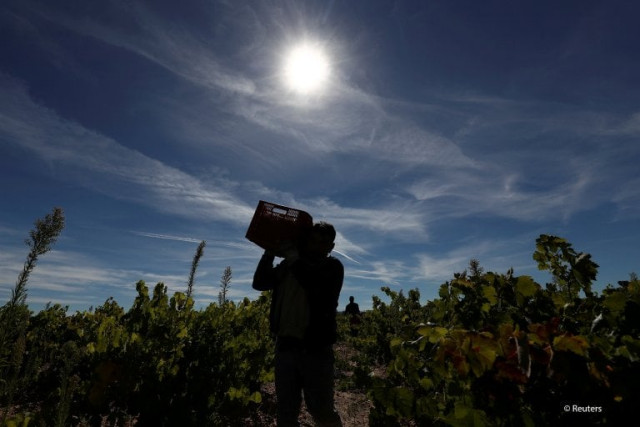'Punjab to see high rural economic growth under PTI'
CM Advicer Dr Salman Shah says Punjab govt planning to connect rural economies with domestic, global markets

Pakistan’s most populous province, Punjab, will have at least three times higher rural economic growth in the remaining tenure of the Pakistan Tehreek-e-Insaf (PTI) government, announced Adviser to Punjab Chief Minister Dr Salman Shah.
In a statement on Tuesday, Shah recalled that since the PTI came to power, it had drafted two strategies for Punjab, ie the Punjab Growth Strategy and the Punjab Spatial Strategy.
“These strategies focus on urban economies of 194 cities of the province as well as transformation of rural economy to bring it on a par with standards of the 21st Century,” he said.
According to the adviser, a lot of work has been done in the fields of seed research, farm management and financial inclusion for the rural economy of the province.
He added that the PTI was revitalising these sectors in Punjab to facilitate small farmers in gaining better access to finance, quality seeds and other necessary advisories.
He shared that the provincial government was also planning to connect rural economies with the domestic and global markets. “This will act as a huge change and correct many problems, however, the strategy is still in the planning stage,” he said.
Talking about urban economies, Shah termed all urban areas the engine of growth and underlined that urban centres, especially the big cities, were hubs of rural migrants.
“We have to decide what sort of clusters is needed in such cities to adjust these migrants,” he said.
Punjab, with a population topping 110 million, had to function as a factory of the world to ensure that the younger population had ample opportunities to sell its products in domestic as well as global markets, the adviser pointed out.
Now, the government is translating its plans in the Annual Development Plan through spending on infrastructure, connectivity, internet and digitisation because all these things are important in present times.
Some new industrial hubs in rural and urban areas had been planned such as for garments, livestock, processed meat and automobile sectors, which would be linked with the China-Pakistan Economic Corridor (CPEC), he said.
Referring to the economic crisis which the country had been facing for the past two years, the adviser highlighted that things had begun to normalise.
“Two years ago, the country was facing a severe economic crisis along with a daunting balance of payments challenge,” he said. “Pakistan was at the brink of default on international loans and if that had happened, the implications would have been grave and the economy would have felt the dent for many years.”
According to him, the biggest achievement of the current leadership is saving the country from default on international loans and the general public has paid a hefty price for it in the shape of ongoing International Monetary Fund programme.
“Now, we have initiated austerity and stabilisation measures while the exchange rate and interest rate should be market determined,” he said.
He added that the past two years were a difficult time for Pakistan “but now the country is going towards stability”. “Economy is growing slowly along with exports, manufacturing and remittances, which means that the overall confidence is getting better,” Shah said.


















COMMENTS
Comments are moderated and generally will be posted if they are on-topic and not abusive.
For more information, please see our Comments FAQ